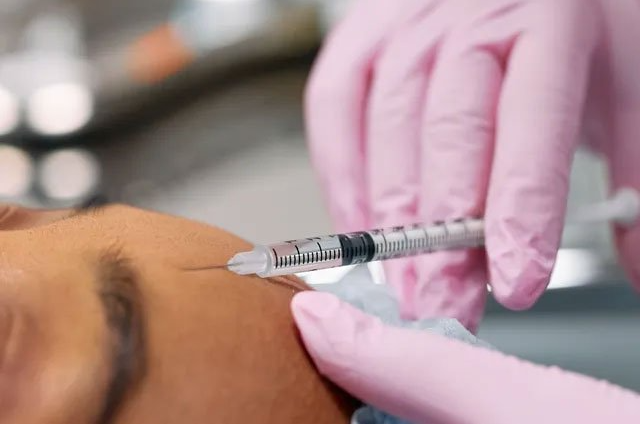Although bruising is not entirely avoidable, there are tips and tricks you can focus on to minimize potential bruising and prepare yourself for your next visit! If you have a big event, plan your injections at least 2 weeks before the big day. Getting your injections done 3-4 weeks before your event is best – this allows time for healing and to address any potential touch ups, if needed.
Things To Avoid:
Anti-Inflammatory/Pain Relieving Medications.
Avoid any anti-inflammatory/blood thinning meds for at least 1 week ahead of time. Please do not discontinue any prescription medications without consulting with your prescribing provider.
Anti-inflammatory or pain-relieving medications that can thin your blood:
- Aspirin (Bayer/Excedrin)
- Ibuprofen (Motrin/Advil)
- Celecoxib (Celebrex)
- Diclofenac (Flector, Cambia, Zipsor, Voltaren)
- Naproxen (Aleve)
Certain Vitamins & Supplements.
The following vitamins and supplements may thin your blood and contribute to bruising. These should be avoided for at least 1 week ahead of time. It is ok, for example, to have garlic or fish in your diet, but avoiding actual supplements and minimizing consumption can be beneficial.
Vitamins and supplements that can thin your blood:
- Vitamin E
- Fish oil
- Flaxseed Oil
- Garlic
- Ginger
- Turmeric
- Ginko Biloba
- St. John's Wort
Alcohol. Minimizing alcohol use at least 24-48 hours before your treatment can drastically reduce bruising – abstaining for a week beforehand is best!
Things That Are OK:
Tylenol. If you happen to get a headache or body ache the night before your injections, reach for the Tylenol instead of the ibuprofen! Tylenol does not thin your blood or increase risk of bruising like anti-inflammatories.
Arnica. Use of arnica can aid in potential reduction of bruising. We do not recommend a particular brand, but arnica is sold over the counter as a natural supplement.
Ice Compress.
Icing with a cold compress can help bruising. Be sure to do this in the first 24-48 hours after injections, but do not apply significant pressure to the areas of injection, as that may disrupt the product placement. Please do not ever apply direct ice or heat to the skin - keep a thin cloth barrier between the ice and skin to avoid tissue injury. Apply compresses with light pressure, every few hours and for about 10 minutes at a time.
Warm Compress.
After a few days, you can start to apply warm compress to areas of bruising to help the bruise dissipate a bit faster. Warm compresses can be done until the bruising has disappeared.
If you ever have any questions or concerns regarding your visit, please contact us at
(262) 701-7040!







